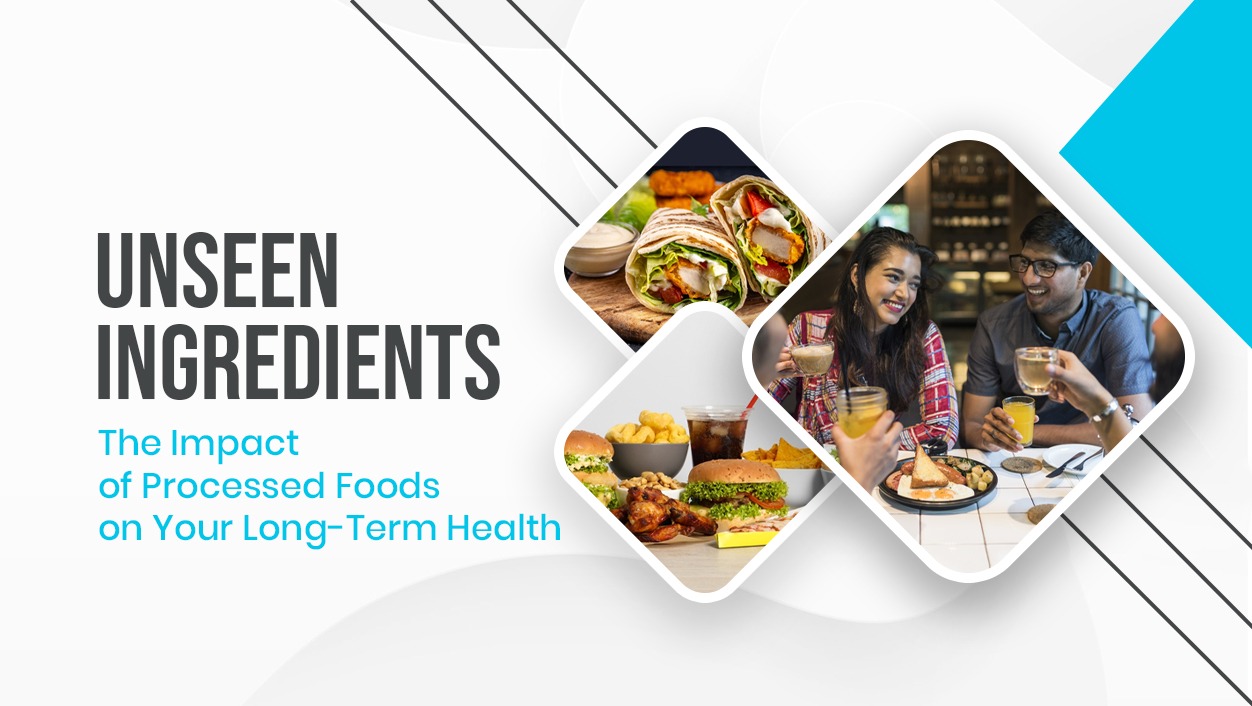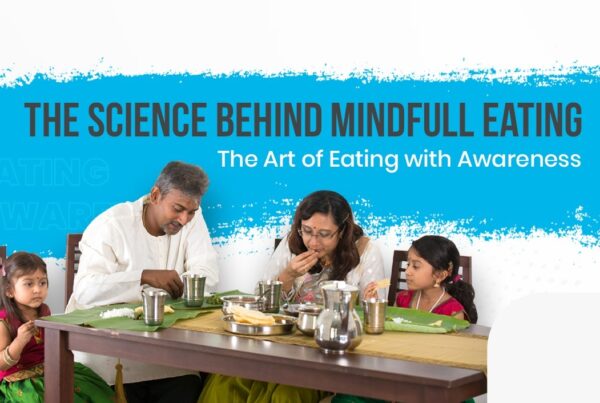Processed foods are a significant part of modern life. From quick snacks to convenient meals, they save time and effort in our busy schedules. But have you ever wondered how processing impacts the food we eat? Not all processed foods are created equal—some are nutritious, while others can be harmful if consumed excessively.
Let’s explore what processed food really means and how it fits into a healthy lifestyle.
What is Processed Food?
Processed food is any food that has been altered from its natural form. This includes simple changes like washing and chopping or more complex ones like adding preservatives and flavors. While some processing helps preserve nutrients and ensure safety, others introduce excess sugar, salt and unhealthy fats.
Understanding the difference between minimally processed and ultra-processed foods is key to making healthier choices.
1. Unprocessed or Minimally Processed Foods
These are foods that are in their most natural form, requiring little to no processing. Basic actions like washing, cutting, or freezing are used to make them ready for consumption, while still retaining their full nutritional value. These foods are the healthiest choice.
These foods are packed with nutrients and free from additives, making them the foundation of a healthy diet.
Examples: Fresh fruits, vegetables , raw nuts, whole grains and fresh dairy.
2. Processed Culinary Ingredients
These foods are derived from natural sources and are typically used to cook or season meals. While they enhance the flavor and texture of dishes, they’re not usually consumed on their own in large quantities.
They help make food tastier and are essential in cooking, but should be used in moderation to maintain a balanced diet.
Examples: Ghee, vegetable oils, sugar, jaggery and salt.
3. Processed Foods
These are foods that have been altered in some way to improve convenience, taste, or shelf life. While they still resemble the original food, they may have added preservatives, sugar, or salt.
While these foods can be part of a balanced diet, some may contain added preservatives or unhealthy fats that can affect health when consumed excessively.
Examples: Canned vegetables, pickles, flavored yogurt, packaged chapatis, paneer, cheese and frozen vegetables.
4. Ultra-Processed Foods
These foods are heavily processed, often containing artificial colors, flavors, preservatives, and high amounts of sugar, salt, or unhealthy fats. They are designed for convenience and long shelf life, but lack essential nutrients.
Regular consumption of ultra-processed foods can lead to health issues like weight gain, high blood pressure, and other chronic diseases. Limiting these foods is important for long-term health.
Examples: Packaged snacks (like chips, biscuits), instant noodles, sugary drinks (like sodas, fruit juices with added sugar), frozen pizzas, and packaged sweets (like cakes, pastries).
Common Ingredients in Processed Foods and Their Impact on Health
Processed foods often contain ingredients designed to enhance flavor, extend shelf life, and improve texture. While some of these ingredients serve functional purposes, excessive consumption of certain additives over time can lead to serious health issues.
1. Refined Sugars and Syrups (Sugar)
Refined sugars and syrups, such as table sugar, cane sugar, and high-fructose corn syrup, are commonly added to processed foods to sweeten products like beverages, candies and baked goods. These sugars provide quick energy by spiking blood sugar levels, offering an instant burst of energy.
Long-term impact: Excessive consumption of refined sugars increases the risk of obesity, Type 2 diabetes, heart disease and dental problems. Over time, these sugars can lead to insulin resistance, causing the body to struggle with regulating blood sugar levels, which can contribute to metabolic disorders.
2. Salt (Sodium Chloride)
Salt is a key ingredient used in processed foods to enhance flavor and preserve food. It is found in snacks, canned foods, sauces and processed meats. Salt helps enhance the taste of food and acts as a preservative by preventing bacteria growth.
Long-term impact: Consuming too much salt can lead to high blood pressure (hypertension), kidney disease, and an increased risk of heart attack and stroke. Over time, excessive salt intake can damage blood vessels, cause water retention and lead to bloating, increasing the risk of chronic diseases.
3. Trans Fats (Partially Hydrogenated Oils
Trans fats are artificially created fats formed when vegetable oils are partially hydrogenated. They are commonly used in processed baked goods, snacks and fried foods to enhance texture and extend shelf life. Trans fats make food more stable, but they also create unhealthy fat profiles that can harm the body.
Long-term impact: Trans fats raise levels of “bad” LDL cholesterol and lower “good” HDL cholesterol, leading to an increased risk of heart disease, stroke and type 2 diabetes. They also contribute to inflammation and are harmful to the body’s overall metabolic health.
4. Artificial Flavors and Colors
Artificial flavors and colors are chemical compounds used to mimic natural tastes and colors, making food more appealing. These are common in processed snacks, candies and drinks. They provide vibrant colors and specific flavors that enhance the overall sensory experience of the food.
Long-term impact: Some artificial colors and flavors have been linked to allergic reactions, hyperactivity in children and other health concerns. Overconsumption of these additives may increase the risk of cancers, behavioral issues and digestive problems over time.
5. High-Fructose Corn Syrup (HFCS)
HFCS is a highly processed sweetener made from corn starch. It’s commonly found in sugary drinks, snack foods, and baked goods. HFCS is metabolized quickly by the body, offering a rapid burst of sugar that the body processes similarly to regular sugar.
Long-term impact: HFCS has been linked to obesity, fatty liver disease and an increased risk of Type 2 diabetes. It disrupts normal liver function, promotes fat buildup around the abdomen and it may over time increase the risk of cardiovascular disease.
6. Preservatives (BHA, BHT, Sodium Benzoate, etc.)
Preservatives like BHA, BHT, and sodium benzoate are chemicals added to processed foods to prolong shelf life and prevent spoilage. These are common in chips, cereals and packaged snacks. Preservatives prevent food from going bad by inhibiting the growth of bacteria, mold and yeast.
Long-term impact: While they help with food longevity, excessive consumption of preservatives has been linked to cancer, allergic reactions and hormonal disruptions. Long-term exposure to these chemicals may affect immune function and increase the risk of chronic diseases.
7. Refined Grains (White Flour)
Refined grains, such as white flour, are processed by removing the bran and germ, leaving behind only the starchy endosperm. These are commonly used in bread, pasta and baked goods. Refined grains are digested quickly by the body, leading to rapid spikes in blood sugar.
Long-term impact: Over time, refined grains can lead to weight gain, increased blood sugar, and a higher risk of Type 2 diabetes. Since they lack fiber, they do not promote satiety and can lead to overeating, contributing to obesity and digestive issues.
8. Artificial Sweeteners (Aspartame, Sucralose, etc.)
Artificial sweeteners like aspartame, sucralose, and saccharin are chemical substitutes for sugar, providing sweetness without the calories. They are commonly found in sugar-free or “diet” foods and drinks. These sweeteners mimic the taste of sugar but are not metabolized by the body in the same way, contributing no calories or sugar spikes.
Long-term impact: While artificial sweeteners are considered safe by many health authorities its long-term use has been associated with an increased craving for sweet foods, potentially leading to overeating. Some studies suggest that artificial sweeteners may alter gut bacteria and contribute to metabolic disorders when consumed regularly.
Conclusion: Moderation is Key
While processed foods offer convenience and flavor, the ingredients they contain can have serious long-term health effects. Excessive consumption of refined sugars, trans fats, preservatives and artificial sweeteners can lead to chronic diseases. It includes obesity, heart disease and diabetes. By being mindful of what we eat and making healthier choices we can reduce the risks associated with processed foods and improve our long-term health.









